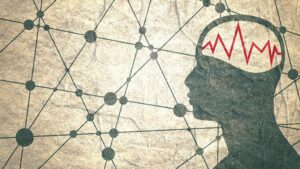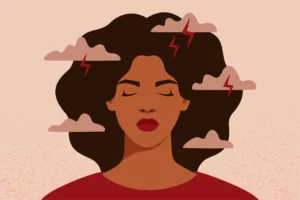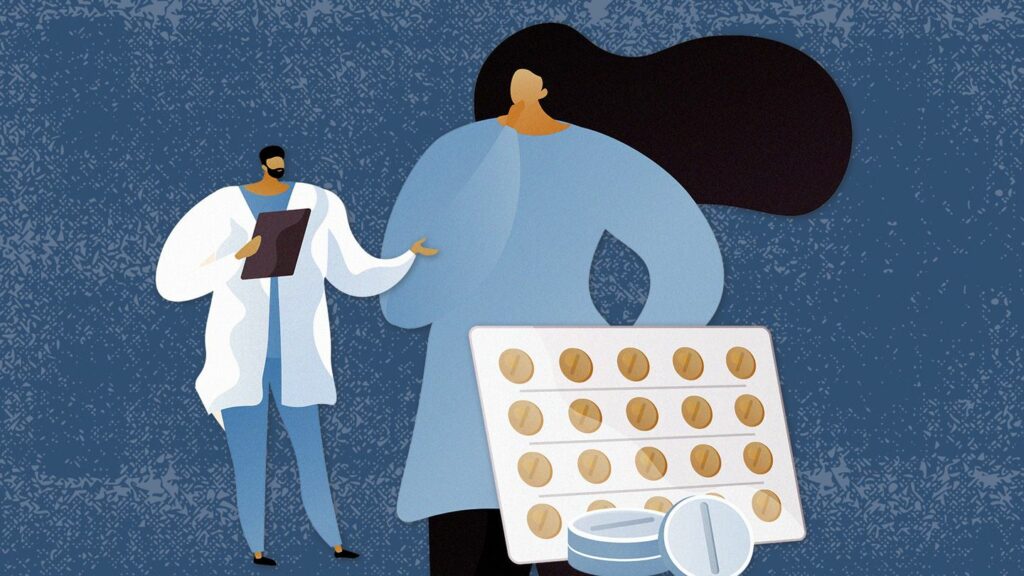Did you know that bipolar disorder is the sixth leading cause of disability in the world? Yet, it is still a mysterious mental illness to many people. In this blog post, we will explore what causes bipolar disorder and dispel some of the myths that are often associated with it. If you are someone who has been struggling with bipolar disorder, or if you have a loved one who is dealing with it, then this information is for you!
Contents
Defining Bipolar Disorder
Bipolar disorder, also known as manic-depressive illness, is a brain disorder that causes unusual shifts in mood, energy, activity levels, and the ability to carry out day-to-day tasks. Symptoms can be severe and can result in damaged relationships, poor job or school performance, and even suicide.
It is important to know that bipolar disorder is not simply a case of “mood swings.” The symptoms are much more severe and can be very disruptive to a person’s life.
There are two types of bipolar disorder:
- Bipolar I Disorder- This is characterized by manic episodes that last for at least seven days (or by manic symptoms that are so severe that hospitalization is necessary). Episodes of depression may also occur, but they are not as common or as long-lasting as manic episodes.
- Bipolar II Disorder- This is characterized by a pattern of depressive episodes and hypomanic episodes, but the manic episodes are not as severe as with Bipolar I Disorder.
What Causes Bipolar Disorder?

The causes of bipolar disorder are not fully understood, but it is thought to be a combination of genetic and environmental factors.
Genetic Factors
The most important factor in determining whether someone will develop bipolar disorder is whether they have a family member with the condition. Researchers believe that bipolar disorder has a strong genetic link, but it is not yet clear exactly what causes the disorder. Studies show that if a person has a parent or sibling with bipolar disorder, they are about four times more likely to develop the condition themselves.
Substance Intake
Substance abuse is a common problem among people with bipolar disorder. It is estimated that about 60% of people with bipolar disorder also have a substance abuse problem. Alcohol and drugs can trigger manic episodes and make symptoms worse. The most common substances abused by people with bipolar disorder include alcohol, cocaine, and marijuana.
Brain structure
Another factor that may contribute to the development of bipolar disorder is changes in brain structure. People with bipolar disorder often have a different brain structure than those who do not have the condition. These differences can be seen in brain scans, and they may be present from birth or develop over time. There is also evidence that people with bipolar disorder have a higher level of activity in the part of the brain that controls emotions.
Chemical Imbalance
It is also thought that bipolar disorder is caused by a chemical imbalance in the brain. This theory is supported by the fact that mood-stabilizing medications, which work to correct this imbalance, are effective in treating bipolar disorder. It is also believed that neurotransmitters such as serotonin and dopamine may be involved in the development of bipolar disorder. These chemicals play a role in mood and emotions, and an imbalance of them can lead to problems.
Environmental Factors
While genetics play a role in causing bipolar disorder, environmental factors are also thought to be involved. It is believed that stressful life events, such as the death of a loved one or losing a job, can trigger symptoms of bipolar disorder in people who are already at risk for the condition.
While there is no single cause of bipolar disorder, it is thought to be caused by a combination of the above factors. It is essential to consult with a mental health professional to assess and identify the root cause of your conditions.
Recognizing Bipolar Disorder Symptoms
Now that we have discussed some of the most common bipolar causes, it is time to talk about their identifying signs. Bipolar disorder can be difficult to diagnose because the symptoms can vary so much from person to person. It is important to be aware of the symptoms of bipolar disorder so that you can get help if you or someone you know is affected by the condition.
The most common symptom of bipolar disorder is mood swings. These swings can range from mild to severe and can last for a few hours or several days. People with bipolar disorder may also experience periods of depression, where they feel sad, hopeless, and have no energy. They may also have manic episodes, which are characterized by feelings of euphoria, decreased need for sleep, and increased activity levels.
Other symptoms of bipolar disorder include:
•Changes in appetite
•Weight gain or weight loss
•Sleeping too much or not being able to sleep
•Difficulty concentrating
•Restlessness
•Irritability
If you are experiencing any of these symptoms, it is important to seek help from a mental health professional. Bipolar disorder is a serious condition that can be effectively treated with medication and therapy. Do not wait to get help if you think you may have bipolar disorder.
Bipolar Disorder Myths

There are many myths about bipolar disorder that can fuel misunderstanding and stigma. Let’s dispel some of these myths:
- Myth: Bipolar disorder is just mood swings.
Fact: Bipolar disorder is much more than simply having mood swings. The symptoms of bipolar disorder can be debilitating and can interfere with every aspect of a person’s life.
- Myth: Bipolar disorder is caused by bad parenting.
Fact: There is no evidence that bipolar disorder is caused by bad parenting. While environmental factors may play a role in triggering the condition, they do not cause it.
- Myth: People with bipolar disorder are always happy and then suddenly sad.
Fact: Bipolar disorder is characterized by extreme mood swings. However, these mood swings can also include irritability, anxiety, and anger. It is important to remember that everyone experiences mood swings from time to time, but the symptoms of bipolar disorder are much more severe.
- Myth: Bipolar disorder is rare.
Fact: Bipolar disorder is actually quite common. It affects about one in every 100 people, and it can occur at any age.
- Myth: There is nothing you can do to help someone with bipolar disorder.
Fact: There are many things you can do to help someone with bipolar disorder. The most important thing you can do is to be supportive and understanding. You should also encourage the person to seek professional help, as there are many effective treatments available for bipolar disorder.
If you or someone you know is struggling with bipolar disorder, know that you are not alone. There are many resources available to help you understand and manage the condition.
Treatment Options
Bipolar disorder is a serious condition that can be effectively treated with medication and therapy. If you think you may have bipolar disorder, do not hesitate to seek professional help. There are also many things you can do on your own to care for yourself and manage your symptoms. With treatment and self-care, you can live a full and productive life despite having bipolar disorder.
Professional Help
If you think you may have bipolar disorder, it is important to seek professional help. A mental health professional can provide a diagnosis and develop a treatment plan that is right for you.
There are many effective treatments available for bipolar disorder, including medication and therapy.
Medication can help stabilize mood swings and relieve other symptoms of the condition. The most common type of medication used to treat bipolar disorder are mood stabilizers, antidepressants, and anti psychotic medications.
Therapy can also be very helpful in treating bipolar disorder. It can provide support, problem-solving skills, and coping strategies. There are many different types of therapy, so you should work with a mental health professional to find the right one for you. There are many different types of therapy that can be helpful for bipolar disorder, including cognitive-behavioral therapy (CBT), interpersonal therapy (IPT), and family-focused therapy.
Self Help Strategies

In addition to professional help, there are also things you can do on your own to manage your symptoms. Self-care strategies that may be helpful include:
•Sticking to a routine
•Eating a balanced diet
•Exercising regularly
•Getting enough sleep
•Limiting alcohol and drug use
•Practicing relaxation techniques
If you have bipolar disorder, it is important to take steps to care for yourself. By following a healthy lifestyle and using self-care strategies, you can help manage your symptoms and live a full and productive life.
Conclusion
In conclusion, bipolar disorder is a serious condition that can be effectively treated with medication and therapy. There is still a huge debate and research about the causes of bipolar disorder, but studies have shown some possible causes of it.
There are also many things you can do on your own to care for yourself and manage your symptoms. With treatment and self-care, you can live a full and productive life despite having bipolar disorder. If you think you may have bipolar disorder, do not hesitate to seek professional help. Remember, you are not alone. There are many resources available to help you understand and manage the condition.
For more information, please contact MantraCare. Bipolar disorder is a mental illness characterized by extreme shifts in mood, energy, and activity levels. If you have any queries regarding Online Bipolar Disorder Counseling experienced therapists at MantraCare can help: Book a trial Bipolar Disorder therapy session


